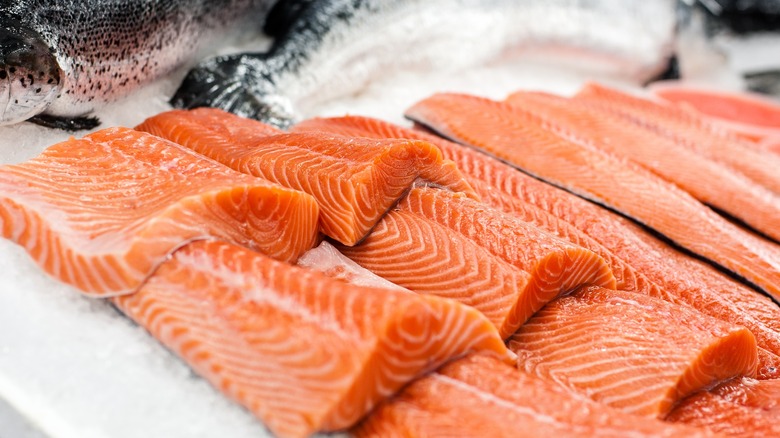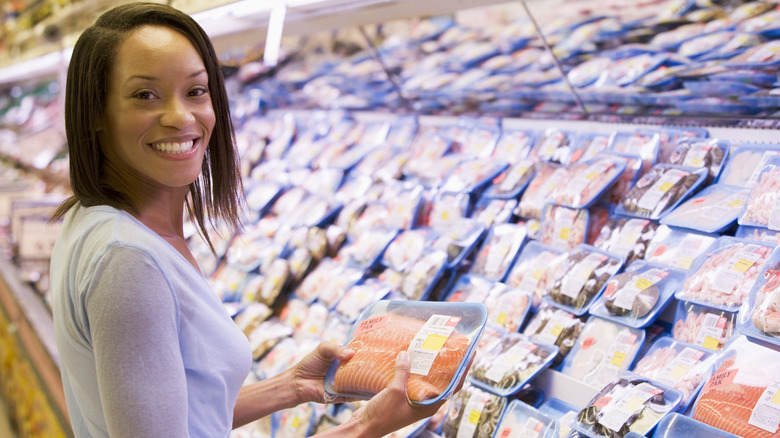Here's How Much Protein You'll Find In Salmon
Whether you're following a Mediterranean diet, a keto diet, or some other type of diet, there's one type of fish that's ubiquitously considered a healthy choice: salmon. Salmon is a popular fatty fish that's extremely versatile in flavor, easy to find, and loaded with health benefits. One 2020 study reports that regularly consuming fish can lower the risk of coronary heart disease. Healthline also shares that salmon is loaded with omega-3 fatty acids, which can help improve your bone, eye, brain, and mental health. But what really crowns salmon as the queen of all fish are its protein levels.
Similar to fat, protein is an important nutrient that the body needs in order to function properly. Dietitian Nancy Waldeck explains to Piedmont Healthcare that "Daily protein intake plays a role in keeping your cells in good shape and should be part of your daily health maintenance plan." Eating protein will help your body repair and oxygenate its cells, build muscle, digest food, and regulate its hormones.
According to WebMD, 10% to 35% of your daily caloric intake should be protein. But how much protein is found in one serving of salmon? In short, that answer depends on what type of salmon you're eating.
Wild-caught vs. farmed salmon
When it comes to protein levels, wild-caught and farm-raised salmon have some subtle differences. One serving of 100 grams of wild-caught salmon contains 115 calories and 19.5 grams of protein according to the U.S. Department of Agriculture (USDA). It also has 4.42 grams of fat. On the other hand, a 100-gram serving of farmed salmon has 212 calories, 20.4 grams of protein, and 13.3 grams of fat (per USDA). And one caveat that may slightly drop these protein levels — eating raw salmon of either type.
If you prefer eating raw salmon (i.e. salmon poke bowl, sashimi, etc.) the protein level may be a tad lower, because the nutrients in raw salmon are less concentrated, points out SFGate. This happens because there's more water in the fish. When salmon is cooked, the water escapes the fish and it becomes more nutrient-dense. But regardless of your preferred style of eating salmon, all of these options are great lean protein choices, free from carbohydrates, and low in calories (via SFGate). So if you're looking for salmon with the highest protein concentration, farmed salmon beats wild-caught salmon (by a slim margin) and raw salmon every single time.


